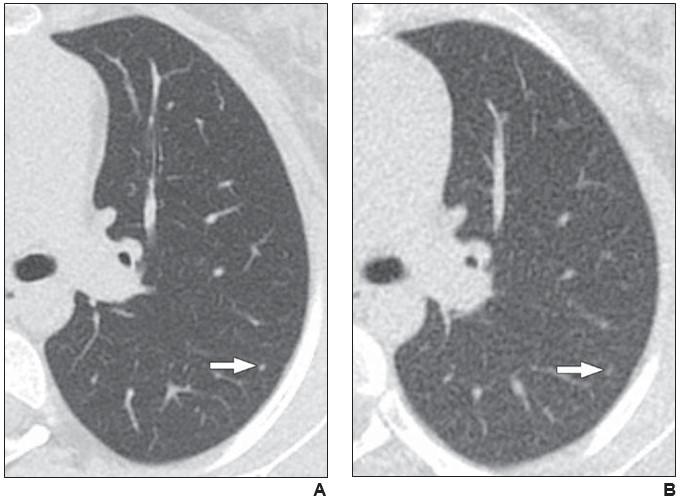Reduced-dose CT depicts greater than 90% of lung nodules in children and young adults with cancer, identifying the presence of nodules with moderate sensitivity and high specificity

Credit: American Roentgen Ray Society (ARRS), American Journal of Roentgenology (AJR)
Leesburg, VA, July 9, 2021–According to ARRS’ American Journal of Roentgenology (AJR), reduced-dose CT depicts greater than 90% of lung nodules in children and young adults with cancer, identifying the presence of nodules with moderate sensitivity and high specificity.
“CT performed at 0.3 mSv mean effective dose has acceptable diagnostic performance for lung nodule detection in children and young adults and has the potential to reduce patient dose or expand CT utilization (e.g., to replace radiography in screening or monitoring protocols),” wrote corresponding author Andrew T. Trout of Cincinnati Children’s Hospital Medical Center in Ohio.
Trout and colleagues’ prospective study enrolled patients 4-21 years old with known or suspected malignancy who were undergoing clinically indicated chest CT. Study participants underwent an additional investigational reduced-dose chest CT in the same imaging encounter. Three independent radiologists blind-reviewed the separated and deidentified CT examinations, with one radiologist performing a subsequent review to match nodules between the standard- and reduced-dose examinations.
Among the 78 patients (44 male, 34 female; mean age, 15.2 years) with cancer who underwent standard-dose chest CT and reduced-dose chest CT (mean effective dose 0.3 ± 0.1 mSv, representing 83% dose reduction) in the same imaging encounter, the reduced-dose protocol detected greater than 90% of lung nodules identified on the standard-dose examination.
Noting that no prior study has directly compared clinical to reduced-dose CT for detection of lung nodules in children, “reduced-dose CT may be a feasible option for detection of pulmonary metastatic disease in situations in which radiation dose is a primary consideration or as an option to reduce dose in patients undergoing serial chest CT to monitor known disease,” the authors of this AJR article concluded.
###
Founded in 1900, the American Roentgen Ray Society (ARRS) is the first and oldest radiological society in North America, dedicated to the advancement of medicine through the profession of radiology and its allied sciences. An international forum for progress in medical imaging since the discovery of the x-ray, ARRS maintains its mission of improving health through a community committed to advancing knowledge and skills with an annual scientific meeting, monthly publication of the peer-reviewed American Journal of Roentgenology (AJR), quarterly issues of InPractice magazine, AJR Live Webinars and Podcasts, topical symposia, print and online educational materials, as well as awarding scholarships via The Roentgen Fund®.
Media Contact
Logan K. Young
[email protected]
Related Journal Article
http://dx.




